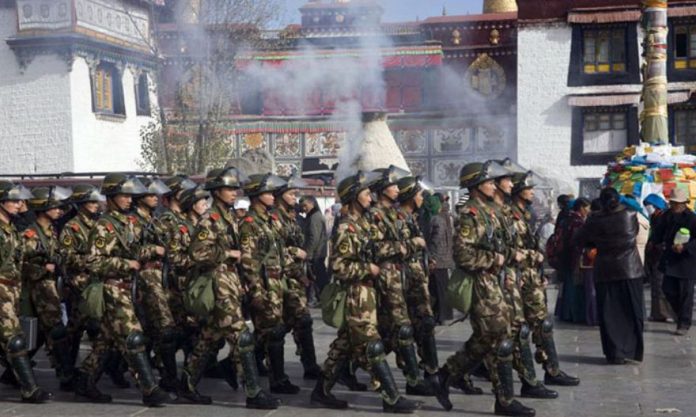As China begins implementing on Sep 1 a new set of measures to restrict religious freedom across the country, the Central Tibetan Administration (CTA) at Dharamshala, India, has expressed serious concern over its particularly serious implications on the situation Tibet.
China’s State Administration for Religious Affairs promulgated the “Measures for the Administration of Religious Activity Sites” or “Order Number 19,” marking a significant escalation in the People’s Republic of China (PRC) government’s ongoing crackdown on religious freedom.
The new regulation, announced by the United Front Work Department of the Chinese Communist Party (CCP) on its website on Jul 31, 2023, “requires temples, monasteries, mosques, etc. to obtain official permission to carry out any religious activity which must strengthen and build a strong sense of Chinese nationalism. This will be achieved through publicity and education campaigns including promotion of Chinese language and “ethnic unity”, said the CTA.
The coercive measures were intended to maximise the PRC government’s control over Tibetan Buddhist cultural and political affairs. It pointed out that Article 27 of the Order, in particular, stipulates that members of the management organisation of religious activity sites must be “loyal supporters of the leadership and rule of the CCP” and “be mainland residents with Chinese nationality.”
Such requirements are seen as being of serious concern to monasteries that refuse to denounce His Holiness the Dalai Lama or express reverence and loyalty to Tibet’s exiled spiritual leader, since China considers them as “separatist”, said the CTA.
Likewise, reporting on the same issue, the voanews.com said Aug 31 that the Administrative Measures for Religious Activity Venues requires religious venues to “support the leadership of the CCP, support the socialist system, and thoroughly implement Xi Jinping’s new era of socialism with Chinese characteristics.”
A website that tracks religious freedom and human rights in China, wrote last week that the new edict “confirms that religious activity venues should actively broadcast CCP propaganda, or face liquidation.”
It continued to report: “There are stricter provisions for including propaganda content in sermons, and establishing study groups of CCP documents in all places of worship. It is also specified that ‘It is prohibited to build large open-air religious statues outside of temples and churches,’ and the prohibition also applies to private citizens or donors.”
Since 1994, China conducted “patriotic re-education” campaigns in Tibetan Buddhist monasteries and nunneries that encourage loyalty to the (Chinese) State and the denunciation of any support and allegiance to His Holiness the Dalai Lama.
It noted that in 2010, Chinese authorities passed “Order No. 8,” officially known as “Management Measures for Tibetan Buddhist Monasteries,” which increased government’s management and control of the internal affairs of Tibetan Buddhist monasteries.
Before that, in 2007, the authorities issued “Order No. 5” or “Management Measures for the Reincarnation of Living Buddhas in Tibetan Buddhism,” under which the Chinese Communist Party assumed “control of the process of recognising important reincarnations of Buddhist lamas,” with the long-term target of interfering in the process of selecting and recognising the reincarnation of the current Dalai Lama.
More recently, the voanews.com report noted that Controls have increased since 2018, when Beijing issued the Regulations on Religious Affairs. In early 2021, China’s State Administration for Religious Affairs promulgated the Measures for the Administration of Religious Clerical Personnel, which came into effect on May 1, 2021.
And last year, on Jun 21, the Financial Management Measures for Places of Religious Activities, came into effect, the report said.









































